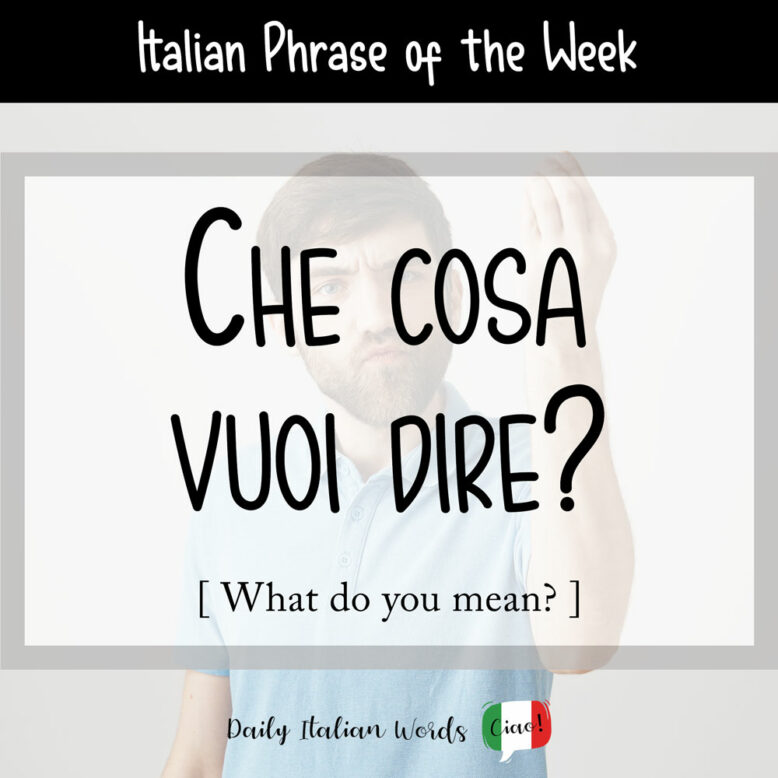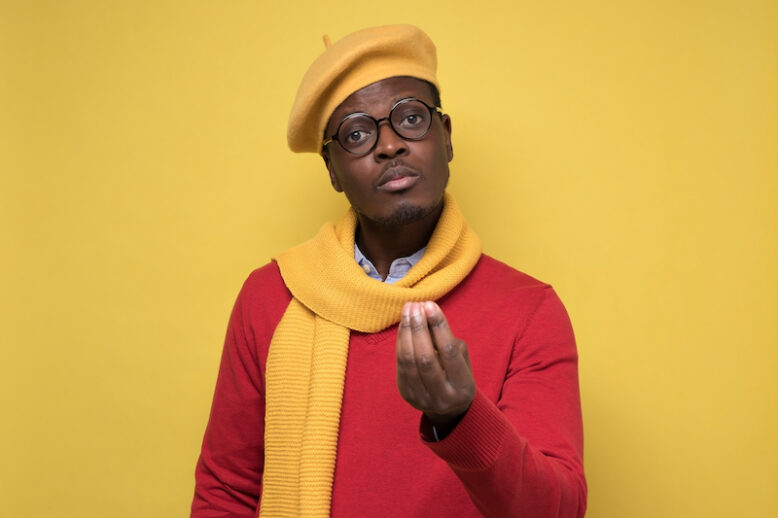If someone provides you with an explanation but you struggle to understand the meaning behind their words, it is only natural to ask the question: What do you mean?
One way to express this in Italian is with the phrase Che cosa vuoi dire? which, word-for-word, can be translated as What do you want to say?
Che cosa vuoi dire?
What do you mean?

Che cosa is the combination of the words che and cosa and together they mean “What?” However, in more informal situations, you will hear these words used individually as an interrogative. Che on its own is more prolific in central and southern Italy, whereas cosa is heard more in the north and Sardinia.
- Che cosa vuoi dire? = What do you mean? (more formal, used everywhere)
- Che vuoi dire? = What do you mean? (central and southern Italy)
- Cosa vuoi dire? = What do you mean? (northern Italy and Sardinia)
Vuoi is the second-person singular of the modal verb volere meaning “to want / to wish”. If you change it to the third-person singular vuole, the phrase can take on two meanings:
- you’re using the formal you (Lei) because you’re talking to a judge or a lawyer for example
- you’re asking what something means.
Often, Italians will troncate the e at the end of vuole for the second meaning, which makes it easier to distinguish the two.
- Che cosa vuole dire? = What do you mean mean? (formal you)
- Che cosa vuol dire? = What does it mean?
Che cosa vuol dire?
What does it mean?
Finally we come to dire which means “to say / to tell” in Italian.

Another possible way to word this phrase is by using the verb intendere which means “to intend“. However it will give the phrase an even more formal tone. You can also add di preciso, which means exactly, to add extra emphasis.
Che cosa intendi (di preciso)?
What do you mean (exactly)?
On the less formal end of the spectrum, we also have the expressions In che senso? (lit. In what sense?) and Ma come? (lit. But how?).
Non posso andare. – In che senso non puoi andare? Abbiamo già prenotato i biglietti!
I can’t go. – What do you mean you can’t go? We’ve already booked our tickets!
Below are a few other expressions that are used to inquire about the meaning of things:
- Che cosa vuoi inferire? = lit. What do you want to infer?
- Come sarebbe (a dire)? = What do you mean? (used when there is a conflict) / What’s that supposed to mean?
- Che cosa significa? = What does it mean? (more formal than vuol dire)
Heather Broster is a graduate with honours in linguistics from the University of Western Ontario. She is an aspiring polyglot, proficient in English and Italian, as well as Japanese, Welsh, and French to varying degrees of fluency. Originally from Toronto, Heather has resided in various countries, notably Italy for a period of six years. Her primary focus lies in the fields of language acquisition, education, and bilingual instruction.


